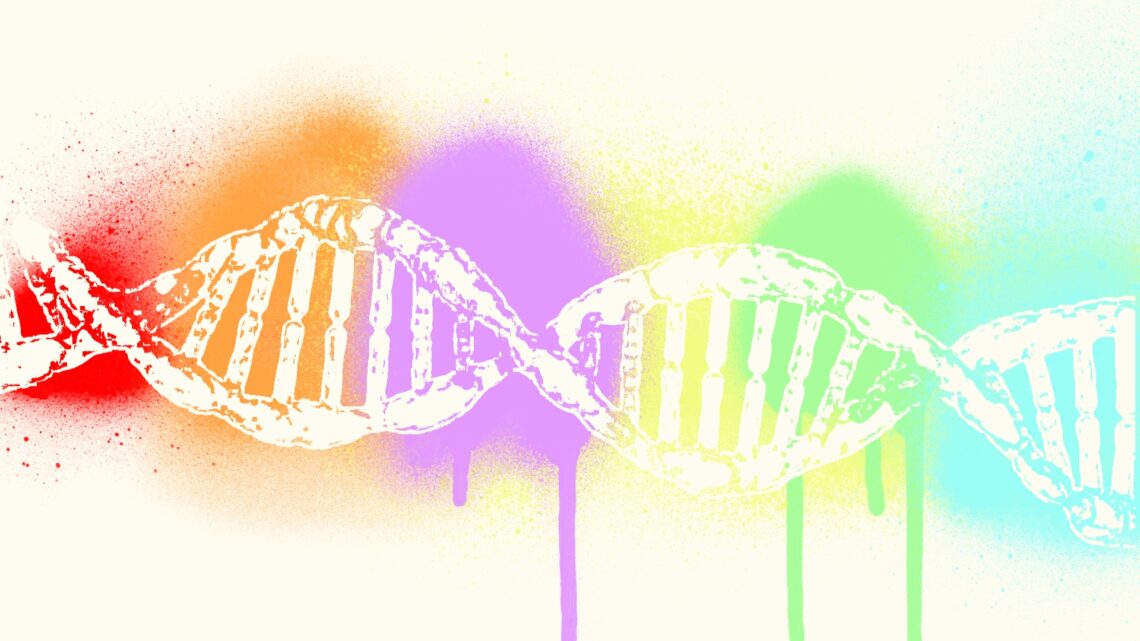
Genetic Testing During My DCIS Decision-Making Process
Genetic testing was an essential part of my DCIS decision-making process. It was critical to understand whether my breast cancer was linked to a genetic variation that would put me at a higher risk for a second cancer. I’m grateful that my surgeon brought up genetic testing right after my initial DCIS diagnosis and that the testing was completed before I needed to make a final surgical decision.
One of the biggest questions that I struggled with during my DCIS diagnosis was “Why me?” Was there some reason that I was getting breast cancer at 41? I didn’t have any of the common risk factors, except that I’m female, which happens to be the most significant risk factor.
If I had a genetic variant that was linked to breast cancer, then not only would that impact my treatment pathway, it would also offer me an answer to the “why me” that was floating around in my head.
Important Note: I am not a doctor or medical professional. This should not be taken as medical advice. Please read my disclaimer for more information.
Not All Breast Cancer is Linked to Genetic Variants
It surprised me to find out that not all breast cancers are linked to genetic variations. Currently, it is believed that between 5-10% of all breast cancers are linked to genetic variants. If a patient has a gene variation linked to cancer, she is at higher risk of developing cancer than a person without that genetic variation.
One of the most commonly known variants linked to breast cancer is the BRCA gene. There are two variants of these genes: BRCA 1 and BRCA 2. These genes are not the only ones linked to increased breast cancer risk. This article gives an excellent overview of the other genes which can also increase a person’s risk of breast cancer.
When Genetic Testing Was Discussed
After my first biopsy, which was positive for DCIS, my surgeon recommended that I seek genetic counseling and potential testing. If I did have a genetic mutation, he would recommend that I choose a mastectomy instead of a lumpectomy to reduce my risk of developing additional breast cancers.
As I discussed the testing options with him, our shared goal was to have as much information in place to make the most educated surgical decision possible. If at all possible, we were going to aim for only one surgery. I would either choose a lumpectomy or a mastectomy with reconstruction.
If I was a candidate for genetic testing, then the goal was to get the results back before my surgery to help in the decision-making process.
My surgeon wrote out the referral and gave me the name of the genetic counselor who worked in the office with him. I called and got the soonest appointment possible to get the genetic testing moving as quickly as possible.
Genetic Counseling: My Favorite Appointment
The genetic counseling appointment was my favorite appointment of my breast cancer diagnosis process. The geneticist I met with was high energy and brought tremendous positive energy to our appointment. Additionally, I was fascinated with how the genetic testing process worked. Plus, I didn’t have to remove my shirt for this appointment!
The first step in the appointment happened before I met the genetic counselor. After I scheduled the appointment, the office sent me a huge packet of paperwork to fill out. I needed to give a thorough family history and disclose if I had any relatives who had cancer, what type of cancer they had, and what their cause of death was.
The family history paperwork is one of the tools that the genetic counselors use to determine if genetic testing is appropriate for you. Medical insurance companies do not cover genetic testing for every breast cancer patient. Genetic testing is costly, and genetic variations cause only 10% of breast cancers. Insurance companies have specific frameworks that they work through to determine if they will cover this testing.
Genetic Testing is Expensive
It is really important to discuss your out-of-pocket costs for genetic testing before it is ordered. When I looked at my bill for my genetic testing, it came out to over $10,000. I didn’t know that blood tests could be that expensive! I’m grateful that the testing was covered and done at an in-network lab.
Many genetic testing companies have accommodations for patients who would like to undergo genetic testing but don’t meet the insurance qualifications. If that is the case for you, I would recommend discussing your options with the genetic counselor and working directly with the genetic testing company to see what can be done.
I verified that the lab was in-network for my insurance company and made sure to work with my genetic counselor to see what my maximum out of pocket for the testing could be.
Genetic Counseling Appointment
During my genetic testing appointment, the geneticist went through my paperwork and asked me lots of follow-up questions about my family history. My mom was able to come with me to the appointment, which was helpful for note-taking and answering any questions that I needed help with.
The geneticist explained that she would be filling out a family genetic profile by using my information. This was a sketch that included markings for the family members who had cancer. She used this drawing along with my age information to determine if I qualified for testing.
Since I had a family history of reproductive cancers and under 45 at diagnosis, I met the qualifications. The next step was to go over some testing choices and discuss my genetic privacy if I intended to undergo the testing.
Privacy Matters – Especially with Genetics
It is possible to buy genetic testing kits over the counter. Companies like 23 and Me offer direct-to-consumer testing options. These genetic testing options have different privacy policies than companies subject to the Health Care Privacy Act (HIPPA). Additionally, they may only test for specific variants of significance with regard to BRCA
If you consider doing an over-the-counter test, check to see how BRCA is handled. This article is an excellent primer on genetic testing and the BRCA variants tested for in direct-to-consumer genetic tests.
There is a law called GINA (genetic information nondiscrimination act) in the United States which prohibits employers from discriminating against an employee due to their genetic testing results. If you are curious about that law, you can read more about it here.
One of the critical points that my genetic counselor went over with me is that if I were to undergo testing and then apply for life insurance, I might need to disclose any of the information found out on the tests.
The privacy conversation was a critical one to have with my genetic counselor. Once I was comfortable with what it might mean to get the testing done concerning my medical privacy, it was time to decide which test I would choose.
How Many Genes to Test?
Once I decided that I wanted to proceed with genetic testing, the geneticist brought out my menu of choices. I had the opportunity to choose from three different levels of testing based on my family history. My office used Ambry Genetics as their lab of choice, so I will share the tests offered to me and include links to them.
- Breast Cancer Genes: This test could be rushed and would specifically test for genetic variants associated with breast cancer
- Cancer Next: A test of 36 genetic variants associated with hereditary cancers
- Cancer Next Expanded: Testing of 77 genes
This was very likely my only opportunity to have this genetic testing done, so I decided to have the most extensive testing run and have a rush placed on the test for the breast cancer genes.
The nurse collected a blood sample in the office (which I passed out for) and then sent it to the lab.
I usually like to make an appointment to discuss results, but in this case, a phone call would get me the results faster. These genetic tests would help me make a surgical decision, so time was of the essence.
Results- My First Bit of Good News!
My phone rang a few weeks after the test was completed when I was on my way down to Santa Monica for my additional biopsies. My geneticist was on the phone with the first piece of good news that I had had since the diagnosis. My tests were in, and I had no genetic variants. I was giddy with excitement, and I thanked her profusely for the call.
While I still didn’t know why I had developed the DCIS, I had more peace that the lumpectomy would be the right surgery for me after getting the results from my genetic tests.
Have you had genetic testing done after a cancer diagnosis? If so, how did it help you with your decision-making process?
Jennifer Douglas
Jennifer is the author of "A Breast Cancer Journey: Living it One Step at a Time," breast cancer survivor, and patient advocate. Her book, published in 2023 by Bold Story Press, is an encouraging guide for breast cancer patients. It contains first-hand information, organized by topics, to help readers navigate the diagnosis, treatment, and recovery from breast cancer. Her writing emphasizes emotional, mental, and physical well-being along with empowered decision-making.


You May Also Like

Get Your Mammogram- Regular Screenings Reduce Risk
June 12, 2020
Skincare During Radiation Treatment
December 8, 2020
